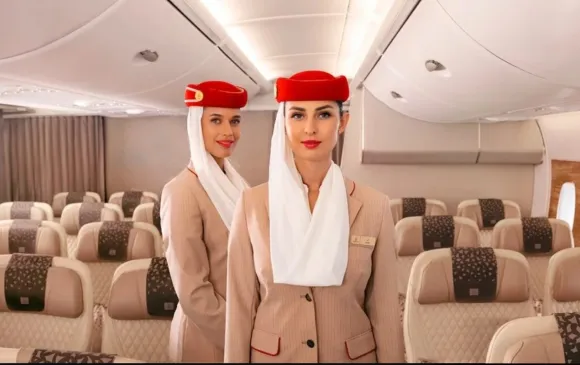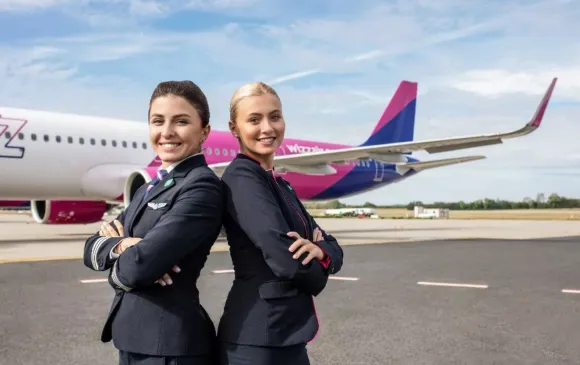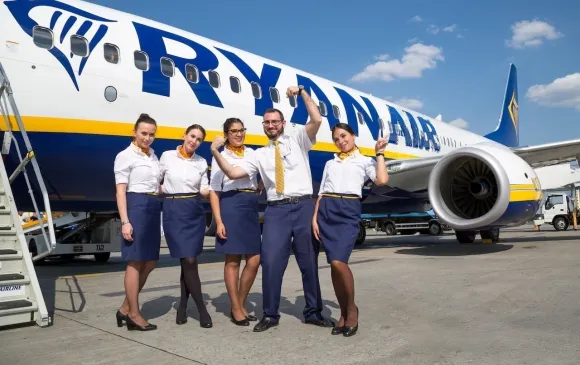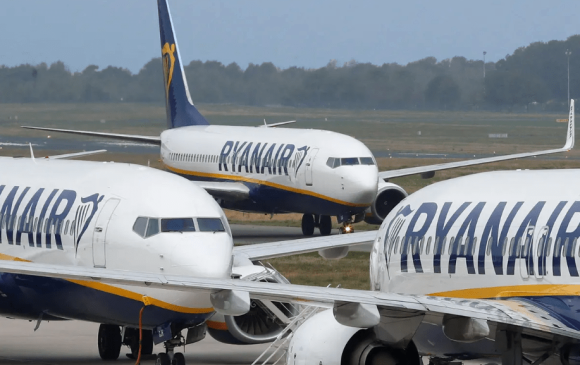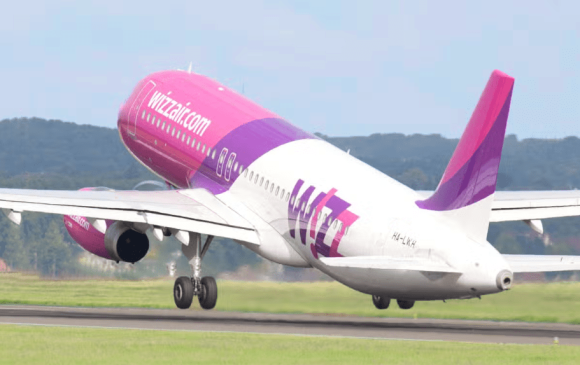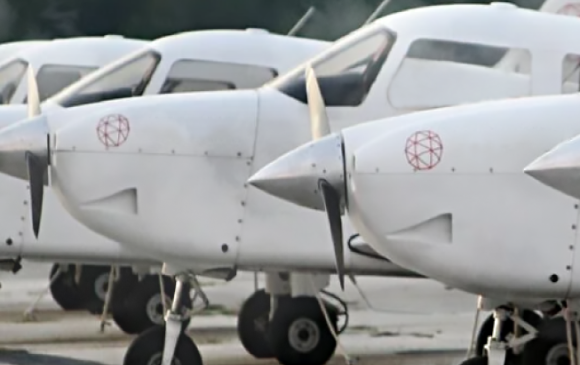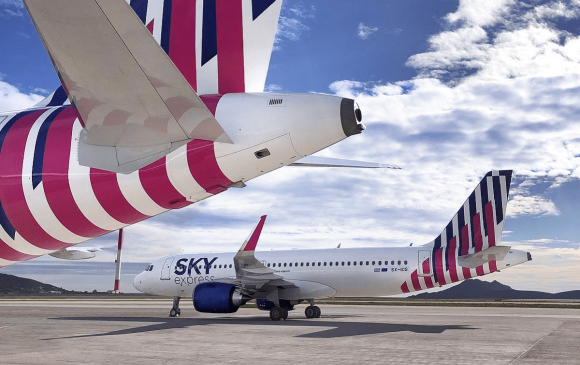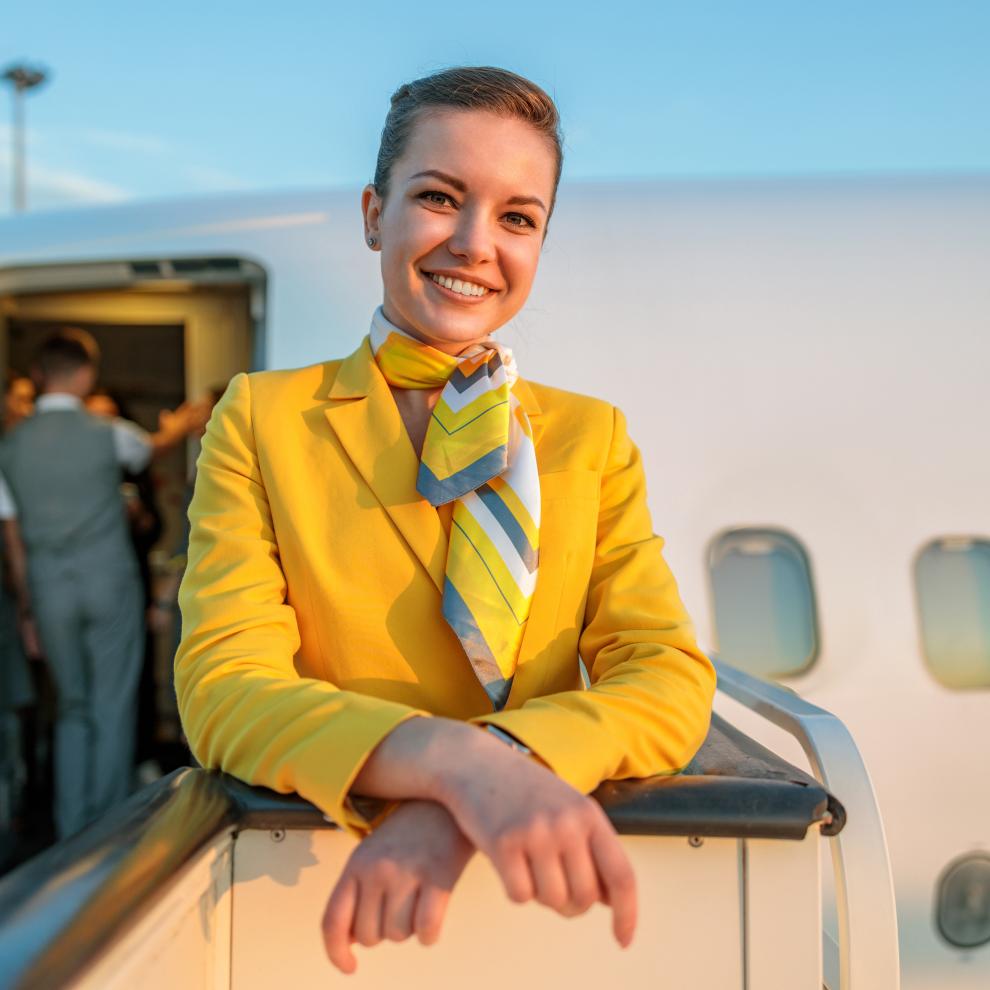The cabin crew Assessment Day can prove to be an intimidating experience. Even the most self-assured candidates experience that. The success rate tends to be low. Yet, airline recruiters usually invite far more applicants than there are available positions. It's a high-pressure setting. Thus, every candidate is likely to encounter some missteps.
We've discussed in our previous articles the strategies for optimising your chances of success during the cabin crew Assessment Day. We were getting some feedback of this nature over some time from some of the candidates. And we have observed the recurrence of certain errors. Unfortunately, candidates who fall into these pitfalls often find themselves rejected.
Only a handful of individuals approach their assessment with a sense of calm and confidence. And even less have a clear understanding of what to say, how to act, and what to expect. When it comes to an airline assessment day for cabin crew, the stakes are high. It's an exhaustive full-day affair. Some unsuccessful candidates leave home after each stage of the interview process.
After all, it's crucial to strike a delicate balance. You must present yourself in the best possible light to the airline recruiter. You should tend to minimise any behaviours that could raise concerns. Being aware of these common mistakes can help you navigate your next cabin crew Assessment Day with confidence. The following list highlights aspects that interviewers deem unacceptable. Those aspects could jeopardise your chances of securing the position. In that case, regardless of how impressive your CV may be, you will not pass.

Being late
Arriving late for your cabin crew interview is a surefire way to diminish your chances of success. In the airline industry, punctuality holds utmost significance. Arriving late reflects disrespect towards the employer. That mistake can cost you the job. Interviews for these positions often occur in group settings. Thus, tardiness shows if you are reliable. Both the interviewer and other staff members may perceive you as untrustworthy.
There is even a worst-case scenario. If you lag too far behind the group, you might miss out on the opportunity to present yourself altogether. To mitigate any unforeseen circumstances, ensure thorough preparation the night before. Choose appropriate clothing, according to the job requirements and the organisational culture. Use Google Maps to pinpoint the interview venue. Aim to arrive early, and even better at least ten to fifteen minutes ahead of schedule. Extend courtesy to everyone you encounter. Whether it's individuals in the parking lot or on public transportation. Treat the receptionist, or the hiring personnel with respect. Remember to switch off your cellphone to minimise distractions.

Inappropriate attire
Remember, you are not dressing to go and grab a sandwich in a next door coffee shop. You should not wear jeans, t-shirt, sport cloth or sneakers. Remember that for any type of interview it is crucial to think and prepare your look. Think about what you want to be associated with. Remember that first of all you the recruiters will judge you by the way you look. Making a positive first impression is crucial, especially in professional settings. Dressing in appropriate attire is key to ensuring you make the best initial impact.
It's important to keep in mind that the aim is to present yourself in a professional manner. Keep this in mind when preparing for an interview. For your interview choose the outfit that will show your professionalism. There are many interpretations of the word "professional". But, there are some general guidelines to adhere to.
Your top priority should be maintaining a well-groomed appearance. This involves addressing personal hygiene matters as well. Ensure that your hair is tidy and presentable. Additionally, it's essential to make sure your clothing is clean and free of wrinkles. While a suit isn't mandatory, it's advisable to avoid too casual or revealing attire. That could have a negative impact and lower your chances, especially in a cabin crew interview.
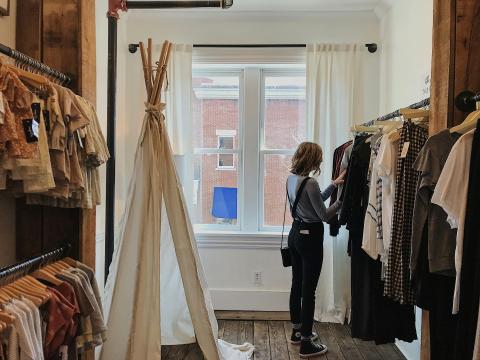
Keep in mind that you want to convey the impression of competence and reliability. These are desirable skills for a cabin crew role. If you're not sure what to wear, choose something professional. Avoid anything inappropriate and focus on achieving a polished and cohesive look. By doing this you'll be one step closer to impressing the interviewer. Well selected attire will give you more chances to secure the position!
Negative talks about your current or past employer
Usually interviewers do not like any negative attitudes. Imagine if your friend said bad things about their other colleagues on a daily basis. Wouldn't you worry they might do the same about you? Remember, no employer wants to risk spreading negative comments about them. It is not appropriate, whether you stay with a company for a decade or a few months only. Negative talks about previous employers can be a significant drawback during interviews. Nothing will change the bad impression, whether the companies are competitors or not. It is better to keep conversations positive. Show appreciation for your former employers. You should handle those discussions about your previous employer in a diplomatic manner. It is vital to avoid criticism of current or past employers.
I would like to add here one more inappropriate topic. This is the topic to avoid in your conversations during your assessment. Avoid broaching topics such as politics or religious viewpoints. Avoid all sorts of sensitive subjects during interviews. Regardless of any perceived alignment with the interviewer's beliefs this is no go. Avoid discussions of this nature. Considering that your colleagues and fellow passengers likely come from diverse backgrounds. They could hold varying perspectives. It's important to respect their sensitivities.

Asking about the salary
Once you've addressed the initial questions, avoid initiating discussions about salary. It can make an impression as if the salary amount is more important to you than anything else. Usually this is not well taken by the recruiters. Ensure that you checked comprehensive information about the offered package. You should be aware of most, if not all, conditions in advance. Asking only about salary and vacation entitlements upfront is inappropriate. Employers prefer candidates who show their interest in contributing to the company's success. They don't look for people who focus on personal benefits from the outset.
Wait for the recruiter to bring it up and make an offer. Let's say you've mentioned that your main focus is providing great service to passengers. Then it might seem conflicting if you seem too concerned about money. Remember, the interview is super important for your job chances. Your answers can make or break your application. You must be careful with what you say to avoid any misunderstandings. Keep these common interview mistakes in mind so you can steer clear of them!

Not listening to the recruiter
Failing to pay attention to the interviewer could result in missing crucial information. Usually recruiters provide valuable insights throughout the interview. It may vary from company details and its historical structure to its evolution. Demonstrating disinterest or ignorance may harm your prospects. It is also not appropriate to check the time non stop. Even worse is checking the messages or taking the phone calls during the assessment in general. The recruiter will spot if you yawn or if you have a glazed over expression of the face. Remember, if you show little interest in them, employers are unlikely to be enthusiastic about hiring you.
Make sure you respond to questions and show attentiveness when sharing information. Asking pertinent questions can influence their perception of you. Inquire about job specifics, opportunities for growth, and timelines for post-interview communication. Yet, it's crucial to avoid asking irrelevant or uninformed questions. Pose thoughtful inquiries that showcase your research on the company. For example you can ask about recent developments, like the arrival of new planes, etc.

Overconfidence or underconfidence during the group exercise
The group exercise aims to prove your ability to collaborate within a team setting. As a cabin crew member, teamwork is essential. It requires cooperation, support, and solidarity with fellow colleagues. You should stay respectful regardless of assigned tasks or responsibilities. During the assessment, it's crucial to exhibit your team-oriented attitude by:
- Refraining from interrupting others during discussions.
- Avoiding assuming leadership unless requested by assessors or the group.
- Recognising that achieving the task's success isn't the only goal.
- Prioritising constructive interaction with others, even in moments of disagreement.
- You should invite those who may be less participative, by inviting their input.
- Taking initiative to support teammates without waiting for instructions. For example you can offer to take notes or manage time.
- Maintaining a balanced stance within the group dynamic. You should neither dominant nor fade into the background.
- Expressing your viewpoints, while also being open to alternative perspectives. Also you should be flexible in adapting to the group's direction.
Generally speaking, demonstrating your collaborative spirit and proactive engagement will showcase your suitability for the cabin crew role.

No enthusiasm
Those who really, really want to be flight attendants stand out from those who just think it's a cool job. They're super excited about meeting new people, experiencing different cultures, and helping others. This genuine excitement is what helps them get the job over others who aren't as passionate. In your last interview, they'll probably ask, "What makes you want to be a flight attendant?" Share your personal journey! Reflect on when you first envisioned this path and the steps you took to inch closer to your dream. Sharing your experiences not only shows your interest and determination but also highlights the skills that match those of top performers and representatives at the airline. Speak from the heart and convey your unwavering commitment. With authentic desire, success becomes inevitable! It will be easier to have a better idea of what to do on the assessment day and knowing what mistakes to steer clear of. Knowing that you will go ahead with more confidence and grab the chance to do great in your interview!

No interaction with other candidates
To do well in your cabin crew interview, it's important to make connections with other people applying for the job. Some people think it's best to keep to themselves during interviews, but that idea is wrong. For sure, you will see other candidates as competitors. Thus, recruiters will check your ability to engage with strangers. If you struggle in social interactions, it would not be a good sign for the recruiters. They might perceive you as someone who could face challenges. For example: in adjusting to diverse environments, or being accessible to passengers. It's important to socialise, exude friendliness, and project approachability. Maintain a warm smile and a pleasant demeanour towards everyone. Engage in conversations and connect with others. Failing to do so might not leave a favourable impression on recruiters.
Talking to others shows the interviewer that you can work in a team. It shows that you could take charge when needed, which is important for cabin crew. It also shows that you're friendly, which is a big plus for this job. So, don't be shy! Chat with the other applicants during your next cabin crew interview. It could make a big difference in whether you get the job or not.

Cabin crew members must thrive in team settings. They should be ready to assume leadership roles if needed. It should become your priority to communicate with other applicants. The same way the airline expects you to interact with the passengers. Furthermore, interacting with peers highlights your amiable and personable nature, qualities crucial for effective cabin crew performance. Seize the opportunity to connect with other candidates during your next cabin crew interview, as it could significantly influence your job search outcome.
Not smiling
Not smiling much during a cabin interview can signal a lack of passion and energy. Such an impression could lower your performance. It's not necessary to maintain a wide grin throughout the entire interview process. But, displaying a pleasant smile can contribute to making a positive initial impression. Thus, it's crucial to strike a balance and avoid appearing too serious or too relaxed. Such behaviour will show confidence, kindness, and professionalism, which will impress the interviewers.

Conclusion
Finally, bear in mind that you're interacting with a real individual, so don't forget to smile! Maintain punctuality as you would in a face-to-face interview. By adhering to this approach, you'll sidestep stress and feel better prepared. To the recruiter, you'll exude reliability and professionalism. Endeavour to maintain a positive attitude on the day of your interview. This will enhance your comfort level. Then, your conversation with the recruiter will be more natural.
Authenticity is key; always be truthful with the recruiter. Avoid fabricating or embellishing stories to present yourself in a more favourable light. Have confidence in your capabilities and talents; believe in yourself. Transform into someone who sets goals and pursues them, regardless of obstacles. If you wish to find out more about cabin crew selections preparation, click here.

